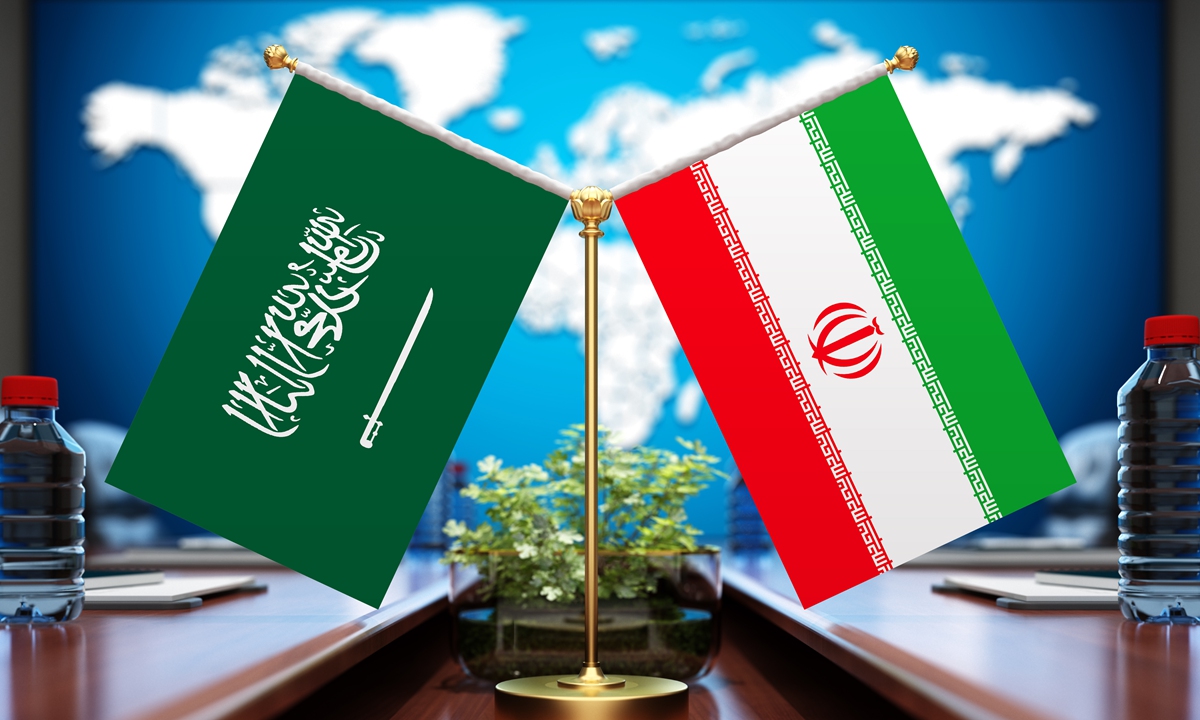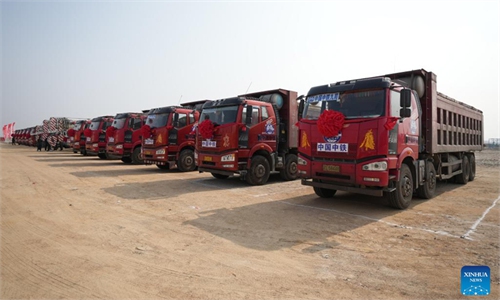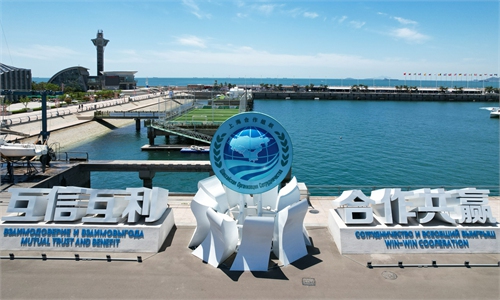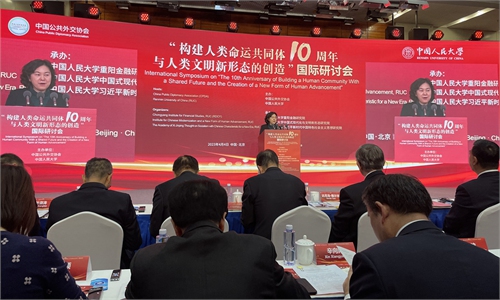Saudi Arabian, Iranian top diplomats to meet in Beijing; may discuss 'detailed arrangements' for resuming ties

Flags of Saudi Arabia and Iran Photo:VCG
The top diplomats of Saudi Arabia and Iran will reportedly meet in Beijing on Thursday. Experts believe the three sides will discuss detailed arrangements following the Saudi-Iran agreement reached last month brokered by China. They noted that in the long run, Beijing will continue to play a vital role in the future for two sides to solve some long-standing and complex problems before they can establish mutual trust.
The meeting between Saudi Prince Faisal bin Farhan Al Saud and his Iranian counterpart, Hossein Amir-Abdollahian, will be the first formal meeting between the countries' most senior diplomats in more than seven years, Reuters reported Wednesday.
Choosing China "came as an extension of Beijing's positive role in reaching the agreement and facilitating communication between the two countries," Saudi-owned Asharq al-Awasat newspaper cited an unidentified source in Riyadh as saying, according to Reuters.
The meeting to be held in Beijing will touch upon some detailed arrangements following the agreement reached last month, including the two countries reopening embassies and the upcoming visit of Iranian President Ebrahim Raisi to Saudi Arabia, Liu Zhongmin, a professor at the Middle East Studies Institute of Shanghai International Studies University, told the Global Times on Wednesday.
In the long run, the three sides also need to talk about many other issues as there is still a long way to go for Saudi Arabia and Iran to establish mutual trust. For example, the three sides could discuss whether it is necessary to set up a tripartite mechanism or even any bilateral mechanism between Saudi Arabia and Iran, between the Gulf Cooperation Council and Iran or between the Arab League and Iran as the relationship between Saudi Arabia and Iran involves many other issues in addition to their bilateral ties, such as issues related to Yemen and Syria, according to Liu.
The two countries alone would not be able to solve all the relevant problems, Liu said. He noted that as the place where the Saudi-Iran agreement was reached, Beijing in the future would continue to play a vital role in helping to promote negotiations over the solutions to some long-standing issues between the two countries.
Under the mediation of China, Saudi Arabia and Iran, "two long-term rivals in the Middle East," held intensive talks in Beijing for several days, and finally reached an agreement on March 10, which includes resuming diplomatic relations and reopening embassies and missions, and arranging for the return of ambassadors within a maximum of two months. They also explored opportunities to strengthen bilateral relations. Furthermore, the two sides will implement the security agreement they signed in 2001.
This news has far-reaching geopolitical implications and is seen by many as a blow to US' diplomatic influence, while also being a significant achievement for China on the international political stage.
It is obviously difficult for the West to understand the fundamental reason why China can successfully promote the reconciliation between Saudi Arabia and Iran, because China follows a diplomatic concept and policy that is completely different from the West's Middle East strategy and policy, and is different from the West's behaviors that divide the region, incite camp confrontation, and promote so-called democratic transformation as well as harmful practices such as proxy warfare, Liu said.
Expert noted that the success that China can promote reconciliation and ease the tensions in the Middle East is based on a solid foundation for China to win the trust of Middle Eastern countries accumulated from the long-term adherence to the five principles of peaceful coexistence, and their historical friendship with China.
Since the new era, China has launched and proposed a series of ideas and practices including a global community of shared future, the Belt and Road initiative, as well as the Global Development Initiative, the Global Security Initiative and the Global Civilization Initiative, which are compatible with the needs of the people in the Middle East who have long been troubled by war, confrontation and civilizational tensions, Liu stressed.
Hua Chunying, China's Assistant Foreign Minister, said at a forum held in Beijing on Tuesday that the agreement Saudi Arabia and Iran reached in Beijing is a victory for peace. It is not only a practice of the Global Security Initiative but a successful practice of the idea of the global community of shared future.



